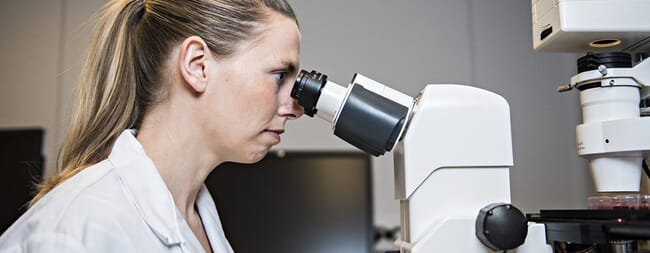Sveen, who is finishing her PhD at The University of Bergen, has researched the impact of stress on Atlantic salmon post-smolts’ ability to heal and to produce mucous. She has induced stress by catching the fish, and by varying fish density and size of the fish in the pens.

© Jon-Are Berg-Jacobsen / Nofima
Sveen used many different techniques to analyse wound healing in stressed and unstressed fish, including microarray. The main gene class that was affected by stress was the immune genes. Their job is to protect open wounds and remove damaged tissue. Many genes involved in wound repair also had a delayed response under stress, causing wounds to close more slowly in stressed fish.
“When a fish is stressed, its immune response changes. Not only do wounds heal more slowly – the fish will also be less able to resist disease,” says Sveen.
“We also found out that when a fish becomes acutely stressed, it loses its protective mucus coating. And it takes more than a day for it to return,” says Sveen.
This is bad news for the fish, as the mucous coating protects the fish against diseases.
“My message is that we must focus on preventative fish health when designing closed containment systems. I think it will be very interesting to see how the industry addresses this challenge.”
“Closed containment aquaculture systems are evolving rapidly, and I can’t wait to see what the fish farming industry’s equivalent to the iPad will be,” says Sveen.



